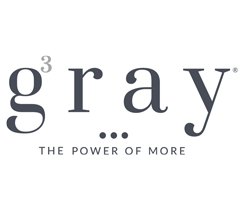California approves rule banning spark-ignited forklifts
The California Air Resources Board (CARB) passed a new regulation that will phase out the operation of large spark-ignited (LSI) forklifts in California and spur the use of zero-emissions alternatives.
Under the rule approved June 27, manufacturers cannot produce or sell, for use in California, Class IV and Class V LSI forklifts – categories that largely operate on propane, gasoline and natural gas – beginning in 2026. The rule also phases out the use of spark-ignited forklifts by large fleets, defined as 26 units or more, starting in 2028. The phase-out schedule is by model year and designed so that no forklift is required to be phased out before it is 10 years old. Smaller fleets will phase out the use of spark-ignited forklifts starting in 2029.
The rule addresses more than 89,000 spark-ignited forklifts currently operating in the state, according to CARB.
“California has an ambitious target of achieving carbon neutrality by 2045, and getting there means tackling all sources of pollution that contribute to poor air quality and climate change,” says CARB Chair Liane Randolph. “Today’s vote makes the forklifts that operate in the state part of the solution toward healthier communities and clean air.”
The Western Propane Gas Association (WPGA) called CARB’s regulation costly, infeasible and flawed, saying it would cost California forklift owners and operators up to $27 billion.
“CARB’s decision to adopt this damaging regulation will lead to lost jobs, economic competitiveness and still not achieve the goals that they expect,” says Colin Sueyres, president and CEO of the WPGA. “The negative impacts will be widespread, including massive hits to affordable housing, critical infrastructure, and agriculture, amongst other industries. CARB, along with the Newsom administration, should’ve been more willing to consider the ramifications. Organized labor, agriculture, small businesses and community stakeholders have raised hundreds of concerns over the years on this rule that has gone unheeded. Instead, they have rejected any effort to achieve their goals sooner through collaboration with those being regulated.”
CARB says it developed the regulation based on input from an extensive public process that included public meetings, workshops, stakeholder input and site visits. The regulation includes compliance exemptions for special circumstances, including low-use forklifts, emergency operation forklifts and those forklifts used in the field for agricultural or forest operations. The regulation also included compliance extensions for delays with infrastructure construction, infrastructure site electrification, zero-emission forklift delivery and operational issues if a zero-emission forklift cannot meet an operator’s needs.
CARB also says it coordinated with the California Energy Commission, California Public Utilities Commission and electric utility providers during regulation development to plan for infrastructure and electrification needs.
Meanwhile, the WPGA says it has been working with stakeholders to develop alternative pathways to compliance and engage CARB. However, CARB dismissed modifications proposed by the WPGA and others over the course of years, the propane association explains in a news release about the regulation.
Currently, forklifts in the state are regulated by the large spark-ignition engine fleet requirements regulation, which was last amended in 2016 and targets fleets of four and over and does not include provisions for the phase-out of large spark-ignition forklifts, both of which are addressed in the new regulation approved by the board.
Read the propane industry’s perspective from Colin Sueyres, president and CEO of the Western Propane Gas Association:
Featured homepage photo: FG Trade/E+/Getty Images
















